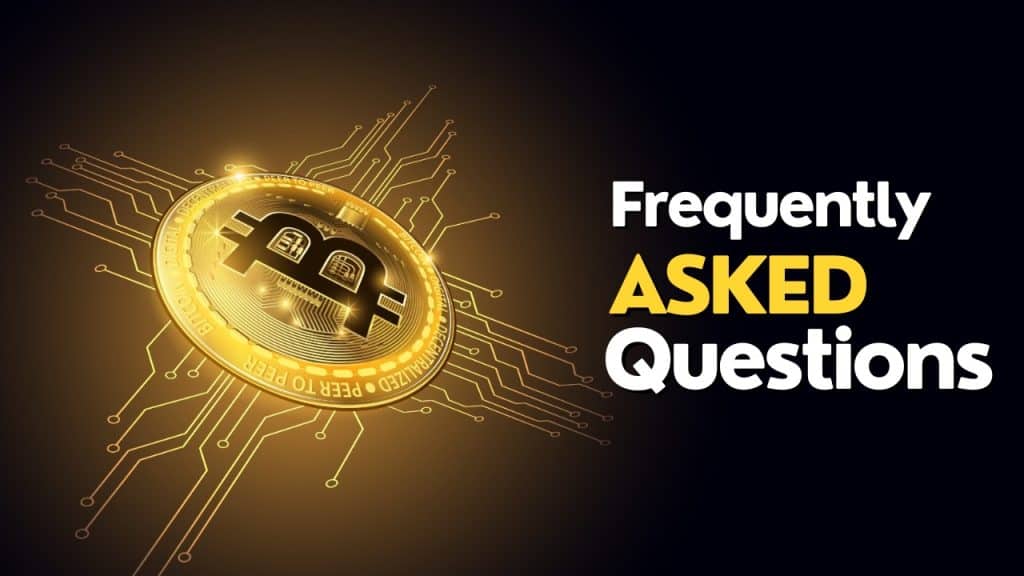Bitcoin mining is an increasingly popular method of generating profits and acquiring bitcoins.
As a result, many people have questions about the process and the requirements for getting started.
In this article, we’ll answer some of the most frequently asked questions about Bitcoin mining and provide a clear understanding of the investment and regulatory considerations involved.
So, let’s get started.
Bitcoin Mining: A Quick Overview
Bitcoin mining is validating transactions on the blockchain by solving complex mathematical problems.
Miners receive a reward in the form of newly generated bitcoins for each block they successfully mine. Bitcoin mining is essential because it maintains the integrity of the blockchain and ensures the security of the network.
Bitcoin mining involves using specialized computer hardware to solve complex mathematical problems. As more miners join the network, the difficulty of these problems increases, making it more challenging to generate new Bitcoins.
In order to mine Bitcoin, miners must invest in specialized equipment, such as Application-Specific Integrated Circuit (ASIC) machines. These machines are designed specifically for Bitcoin mining and are optimized for maximum efficiency and profitability.
Once a miner has acquired the necessary equipment, they must join a mining pool or network. This allows them to combine their computing power with that of other miners, increasing their chances of generating new Bitcoins and earning rewards.
Getting Started with Bitcoin Mining
What is the minimum investment required for Bitcoin mining?
The cost of starting a Bitcoin mining operation can vary greatly depending on a few factors such as the cost of equipment, electricity rates, and the mining difficulty level. It’s important to note that mining Bitcoin is a competitive process, and it requires a significant investment in equipment and electricity. The minimum investment required to start mining Bitcoin ranges from a few thousand dollars to tens of thousands of dollars, depending on the equipment used and the location.
What equipment do I need to start Bitcoin mining?
The equipment needed for Bitcoin mining includes specialized hardware called Application-Specific Integrated Circuit (ASIC) devices, which are designed to solve the complex mathematical algorithms required to mine Bitcoins. ASIC devices can range in cost from a few hundred to several thousand dollars, depending on their processing power and efficiency. Additionally, a power supply unit and cooling system are required to keep the ASIC device operating smoothly.
How much electricity does Bitcoin mining consume?
Bitcoin mining is an energy-intensive process that requires a significant amount of electricity. The amount of electricity consumed depends on the processing power of the mining equipment and the difficulty level of the mathematical algorithms being solved. According to the Cambridge Bitcoin Electricity Consumption Index, Bitcoin mining consumes an estimated 129.5 terawatt-hours (TWh) per year, which is more than the entire annual electricity consumption of Argentina.
How long does it take to mine a Bitcoin?
The time it takes to mine a Bitcoin can vary based on several factors, including the processing power of the mining equipment and the difficulty level of the mathematical algorithms being solved. In general, it takes about 10 minutes to mine a single Bitcoin block. However, with the increasing number of miners and competition, the time required to mine a block can increase.
How profitable is Bitcoin mining?
Bitcoin mining can be a profitable venture if done correctly. The profitability of Bitcoin mining depends on several factors, including the cost of electricity, the price of Bitcoin, and the efficiency of the mining equipment. According to the Bitcoin Mining Calculator, the current profitability of mining one Bitcoin is about $38,000, which may fluctuate with the changing prices and mining difficulty level.
Legal and Regulatory Considerations for Bitcoin Mining
Is Bitcoin mining legal in my country?
The legality of Bitcoin mining varies by country. Some countries, such as China and Iran, have banned Bitcoin mining, while others have imposed strict regulations on the practice. In the United States, Bitcoin mining is legal, but it’s subject to federal and state regulations. It’s important to research the laws and regulations in your country or state before starting a Bitcoin mining operation.
What are the tax implications of Bitcoin mining?
The tax implications of Bitcoin mining can vary depending on the tax laws in your country or region. In some cases, Bitcoin mining income may be subject to income tax, capital gains tax, or both.
What are the environmental concerns related to Bitcoin mining?
Bitcoin mining requires a significant amount of electricity, and as a result, it can have a significant environmental impact. In particular, concerns have been raised about the carbon footprint of Bitcoin mining and the potential for Bitcoin mining to contribute to climate change.
Some Additional Faqs
Can I mine Bitcoin using my laptop or desktop computer?
It is technically possible to mine Bitcoin using a laptop or desktop computer, but it is not recommended. This is because Bitcoin mining requires a lot of processing power, and the computing power of a laptop or desktop is not sufficient to mine Bitcoin profitably. Additionally, mining Bitcoin using a laptop or desktop can cause the device to overheat and damage the hardware.
Is Bitcoin mining still profitable in 2023?
The profitability of Bitcoin mining depends on various factors, such as the cost of electricity, the price of Bitcoin, and the mining difficulty. As of 2023, Bitcoin mining can still be profitable for those who have access to low-cost electricity and efficient mining equipment. However, it is important to keep in mind that the profitability of Bitcoin mining can fluctuate based on market conditions.
How can I secure my Bitcoin mining operation?
To secure your Bitcoin mining operation, it is important to use secure mining software and hardware, as well as implement strong security measures such as two-factor authentication and encryption. Additionally, it is recommended to store your mined Bitcoins in a secure wallet and to regularly back up your data.
Can I mine other cryptocurrencies besides Bitcoin?
Yes, it is possible to mine other cryptocurrencies besides Bitcoin. Some popular alternative cryptocurrencies that can be mined include Ethereum, Litecoin, and Monero. However, the mining process and profitability of these cryptocurrencies may differ from that of Bitcoin.
How can I join a Bitcoin mining pool?
To join a Bitcoin mining pool, you will need to find a reputable mining pool and create an account. Once you have created an account, you can join the mining pool and contribute your computing power to the pool’s mining efforts. In exchange, you will receive a share of the pool’s rewards based on your contribution.
The Future of Bitcoin Mining: Innovations and Challenges Ahead
Bitcoin mining is a constantly evolving industry that is faced with both challenges and opportunities. Here are some of the innovations and challenges that are likely to shape the future of Bitcoin mining:
Innovations:
- Advancements in mining hardware and software that increase efficiency and reduce energy consumption.
- The development of new mining algorithms that are more resistant to ASIC mining.
- The integration of renewable energy sources into Bitcoin mining operations.
Challenges:
- The increasing centralization of Bitcoin mining is due to the dominance of large mining pools.
- The rising cost of electricity and its impact on profitability.
- The regulatory landscape and potential restrictions on Bitcoin mining in certain jurisdictions.
As the industry continues to evolve, it is important for Bitcoin miners to stay informed and adapt to these changes in order to remain competitive and profitable.
Conclusion
Overall, Bitcoin mining can be a profitable and rewarding endeavour for those who are willing to invest the time and resources required to do it properly. However, it is important to carefully consider the various factors involved before getting started and to stay informed about the evolving landscape of the industry.



